Homesteading is a great way to become more self-sufficient and learn new skills.
There are many skills that every beginner should learn before embarking on a homesteading journey. These skills can help you become more self-sufficient and better prepared for the challenges of homesteading. Some of the most important skills include learning how to garden, can and preserve food, raise chickens, sew your own clothes, and make your own soap and candles.
Additionally, first-aid and CPR training can be invaluable in case of an emergency. And finally, having a plan for when things go wrong is always a good idea. By learning these skills, you’ll be better equipped to handle anything that comes your way while homesteading.
1. Learn how to garden
Learning how to garden is an essential skill for any homesteader. Not only will it provide you with fresh fruits and vegetables, but it can also help you to save money on your grocery bill. In addition, gardening can be a great way to get exercise and enjoy the outdoors. If you’re new to gardening, there are a few things you should keep in mind.
First, make sure to choose a suitable location for your garden. This means finding a spot that gets plenty of sunlight and has good drainage. Once you’ve found the perfect spot, it’s time to start preparing the soil. This involves tilling the soil and adding organic matter such as compost or manure.
Once your soil is ready, you can start planting your seeds or seedlings. Remember to water your plants regularly and fertilize them as needed. With a little patience and care, you’ll be able to reap the rewards of a beautiful garden in no time.
For more tips on gardening check out this book, The Vegetable Gardener’s Bible, 2nd Edition: Discover Ed’s High-Yield W-O-R-D System for All North American Gardening Regions: Wide Rows, Organic Methods, Raised Beds, Deep Soil
2. Learn How to Can and Preserve Food
One of the most important skills a homesteader can learn is how to can and preserve food. Canning and preserving food allows you to extend the shelf life of your food so that you can enjoy fresh fruits and vegetables all year long. There are a variety of methods for canning and preserving food, so it’s important to choose a method that best suits your needs.
For example, if you want to preserve food for long-term storage, you may want to consider pickling or preserving it in oil. If you’re looking for a quick and easy way to extend the shelf life of your food, you may want to try freezing or dehydrating. No matter which method you choose, learning how to can and preserve food is an essential skill for any homesteader.
3. Learn how to raise chickens
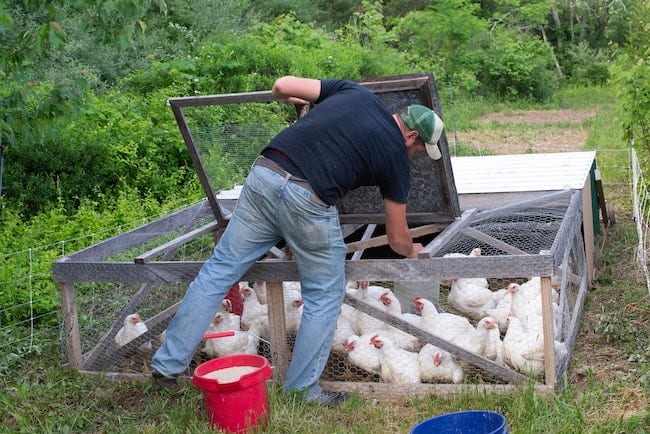
How to raise chickens – Chickens are a great addition to any homestead, providing fresh eggs and meat. Plus, they’re relatively easy to care for and don’t take up much space. If you’re new to chicken raising, start with a small flock of 3-4 birds.
While chickens are a great addition to any homestead, they do require some care and attention. Here are a few tips for raising chickens:
- Choose the right breed of chicken. Some breeds are better suited for backyard chicken raising than others. Try to choose a breed that is hardy and adaptable to your climate.
- Provide your chickens with a comfortable home. Chickens need a place to roost and lay their eggs. A chicken coop or chicken tractor is a great way to provide your chickens with a comfortable home.
- Make sure to feed your chickens a balanced diet. A healthy diet will help your chickens stay healthy and produce plenty of eggs.
- Keep your chickens safe from predators. Chickens are vulnerable to predators such as dogs, foxes, and coyotes. To keep your chickens safe, build a secure chicken coop and fence in your chicken run.
Discover How To Easily Build An Attractive And Affordable Backyard Chicken Coop
4. Learn how to sew your own clothes
Moving to the country and living off the land used to be a common way of life, but as society has become more urbanized, those skills have been largely lost. However, there is a growing movement of people who are interested in learning how to homestead. If you’re new to homesteading, there are some skills that you should definitely learn. One of those skills is sewing.
In a homesteading setting, you might need to make repairs to clothes or even sew your own clothes from scratch. You might also need to sew other items like bedding or curtains. There are many resources available to help you learn how to sew, including online tutorials, books, and even local classes. With a little practice, you’ll be able to sew just about anything you need. So if you’re interested in homesteading, be sure to add sewing to your list of skills to learn.
First Time Sewing: The Absolute Beginner’s Guide
5. Learn basic carpentry skills
Woodworking is a timeless trade that anyone can learn. Not only is it a great way to add value to your home, but it’s also a fun and rewarding hobby. And, with the right skills, you can even turn it into a lucrative career. But where do you start?
If you’re interested in learning carpentry, the first step is to acquire some basic skills. Here are four essential skills that every carpenter should know:
- Measuring and cutting wood: This is perhaps the most important skill for any carpenter. Accurately measuring and cutting boards is essential for ensuring that your project turns out looking professional.
- Reading plans and blueprints: Unless you’re working on a very simple project, chances are you’ll need to consult plans or blueprints at some point. Learning how to read these documents will save you a lot of time and frustration.
- Assembling pieces: Once you’ve cut all the pieces for your project, it’s time to put them all together. This requires different assembly techniques depending on the type of woodwork you’re doing, so it’s important to familiarize yourself with the various methods.
- Finishing touches: No project is complete until it’s been sanded, stained, and sealed (if necessary). Finishing touches can make all the difference in the look and feel of your project, so it’s important to take the time to do them right
Click here to see The World’s Largest Collection of 16,000 Wood Plans
6. Learn how to make your own soap and candles
Making your own soap and candles is a fun and rewarding hobby that provides you with beautiful, natural products to use in your home. The first step in making soap is to choose the right oils. Different oils will produce different types of soap, so it’s important to do some research to find the perfect combination for your needs.
Once you’ve selected your oils, the next step is to melt them down and mix them together. Then, you’ll add your chosen fragrance and colorants and pour the mixture into molds. After the soap has cooled and hardened, you can remove it from the mold and enjoy your homemade creation! Making candles is a similar process, but instead of using molds, you’ll dip wicks into molten wax to create lovely dipped candles. With a little practice, you’ll be able to make beautiful soaps and candles that are perfect for yourself or as gifts for friends and family.
Recommended: States With Laws (and What They Are) About Living Off The Grid
7. Learn first-aid and CPR
As any homesteader knows, accidents can happen at any time. That’s why it’s important to be prepared for anything by learning first-aid and CPR. First-aid can help to treat minor injuries and illnesses, while CPR can be a lifesaver in the event of a serious accident. By taking a few simple courses, homesteaders can gain the skills and knowledge they need to deal with any emergency.
First-aid courses typically cover basic topics such as wound care, burns, and breaks. In addition, students will learn how to deal with common illnesses such as colds and flu. CPR courses, on the other hand, focus on helping people who have stopped breathing or have no pulse. This can be essential in the event of a heart attack, stroke, or drowning. By learning CPR, homesteaders can be prepared to save lives in an emergency.
While first-aid and CPR courses are not required for homesteading, they can be extremely useful in an emergency situation. By taking a few simple classes, homesteaders can gain the skills and knowledge they need to deal with any type of accident or illness.
8. Learn how to make your own natural cleaning products
Making your own cleaning products is a great way to save money and reduce your impact on the environment. There are many recipes available online for DIY cleaning solutions, and with a few simple ingredients, you can create everything from all-purpose cleaners to laundry detergent. One advantage of making your own cleaning products is that you can tailor them to your specific needs.
For example, if you have sensitive skin, you can make a gentle cleaner using castile soap and essential oils. Or, if you live in a hard water area, you can add vinegar to your laundry detergent to help reduce mineral buildup. In addition, DIY cleaning products are often just as effective as store-bought brands, and they’re unlikely to contain harmful chemicals. So, if you’re looking for a more sustainable and economical way to clean your home, consider making your own natural cleaning products.
9. Learn basic plumbing and electrical skills
For anyone interested in homesteading, it is important to have a basic understanding of plumbing and electrical work. These skills will come in handy for everything from fixing a leaky faucet to wiring a new shed. While some of the more complex repairs may require the help of a professional, knowing how to do basic plumbing and electrical work can save you time and money in the long run.
In addition, having these skills will give you the confidence to tackle any repair that comes your way. With a little practice, you’ll be fixing pipes and wires like a pro in no time.
Here are two good books to learn basic plumbing and electrical skills.
10. Have a plan for when things go wrong
No one likes to think about what could go wrong, but when you’re homesteading, it’s important to have a plan for when things don’t go according to plan. Whether it’s a broken-down tractor or a sick animal, being prepared can make all the difference.
One of the first things you should do is create a list of emergency contacts. This should include family and friends who can help out in a pinch, as well as professionals who can assist with repairs or medical care. It’s also a good idea to keep an up-to-date inventory of your supplies and equipment, so you know what you have on hand in case of an emergency.
If something does go wrong, the most important thing is to stay calm. Take a deep breath and assess the situation. Then, follow your plan and reach out for help if you need it. With a little preparation, you can minimize the impact of any mishaps and keep your homestead running smoothly.
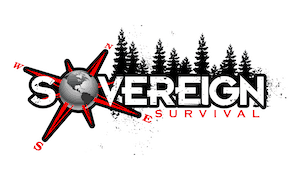
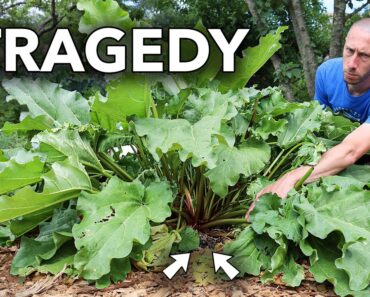
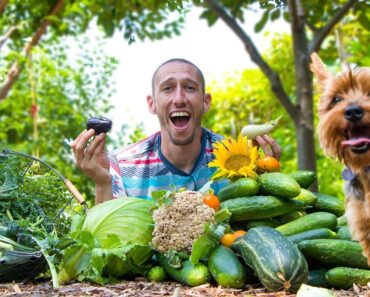


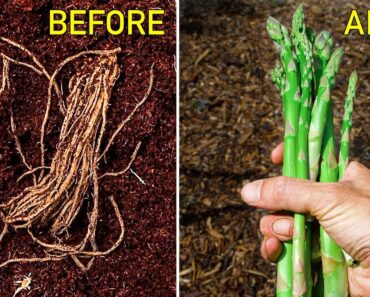
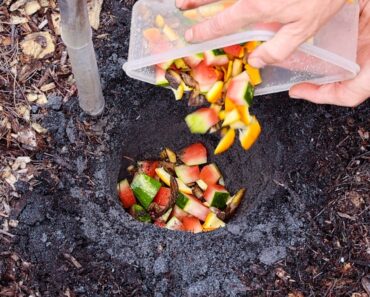
No Responses